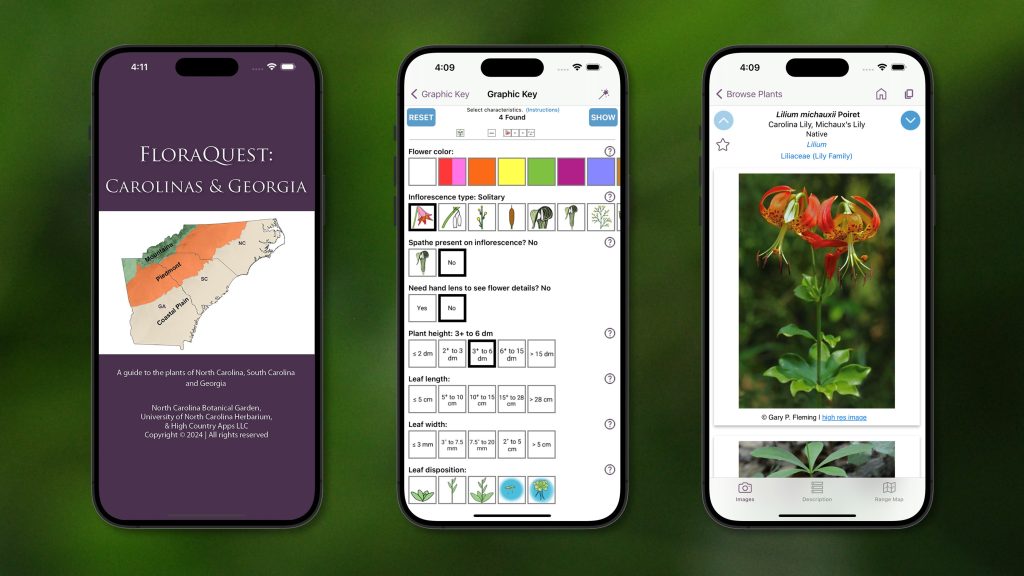Since last year’s release of FloraQuest: Northern Tier, Alan Weakley and the Southeastern Flora Team have been hard at work to bring you FloraQuest: Carolinas & Georgia. This is the next plant identification and discovery app released by the UNC Herbarium (NCU) and North Carolina Botanical Garden, covering more than 5,800 wildflowers, trees, shrubs, grasses, and other vascular plants occurring in North Carolina, South Carolina, and Georgia. We’re proud to now offer an app covering all the plants that grow in our home state!
With easy-to-use graphic keys, advanced dichotomous keys, habitat descriptions, range maps, and 33,333 diagnostic photographs, FloraQuest: Carolinas & Georgia is a field-ready phone app designed for use in remote field settings (no internet connection needed) as well as in your own backyard. The app covers all wild-growing plant species in the three states, and can be filtered geographically to cover your state or physiographic region. The geographic filtering, much like the filtering available in the graphic key, allows for more efficient identification of the plants around you.
The Southeastern Flora Team has also incorporated new features into FloraQuest: Carolinas & Georgia, such as wetland status and heliophily ranks, an updated glossary and hyperlinked dichotomous keys, as well as 35 new “Great Places to Botanize.”
Last year, our Southeastern Flora Team released FloraQuest: Northern Tier, which covers Kentucky, West Virginia, Virginia, Maryland, Washington (D.C.), Delaware, Pennsylvania, New Jersey, and parts of New York, Ohio, Indiana, and Illinois; if you’ve already purchased the Northern Tier app, stay tuned for an update to its features and photos later in March. In the coming years, our Flora team will be releasing additional apps for the Florida, the Mid-South, and the Western Tier.
Learn more about the app here, where the app is available for purchase ($19.99) on both iOS and Android devices.
We remain committed to traditional floras and making flora data accessible: we have updated the latest PDFs of the Flora of the Southeastern United States as well as our online FSUS webapp, both free (with donations optional).

